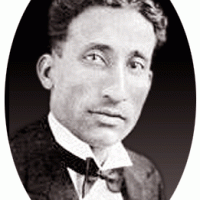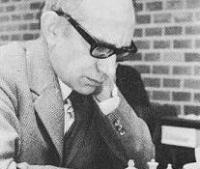
A Genius from India
Sultan Khan, born in 1905 in Mittha in the Punjab, India, was the strongest chess player from Asia in his time and is unofficially recognized as the first Asian Grandmaster.
According to the Oxford Companion to Chess ‘The greatest natural player of all times’ and to some sources ‘an unlettered, illiterate genius’; ‘[he] was completely illiterate and could therefore not benefit from books on the game’; ‘an illiterate peasant’; ‘completely illiterate’; ‘… his complete inability to read any European textbook on the game’ and so on!
After winning all chess competitions in 1928 in India, Sultan Khan came with Sir Umar Hayat Khan, his patron and master, to London. In four years he won the British Chess Championship three times (1929, 1932, 1933) missing the title only once, in 1931. He also played top board for Britain in the 1930, 1931 and 1933 Olympiads!
In match play he beat Dr Savielly Tartakower in a friendly match.
From 1930 through 1933, Sultan Khan was an active participant in the international tournament panorama, and he did not just participate; he was one of the best players in the world!
He returned to India with Sir Umar in December 1933 and he passed away in Sargodha, Pakistan in 1966.
Today I want to share with you some positions from Sultan Khan's play, but mainly a game that created a sensation in its time; I am talking about the game Sultan Khan-Capablanca played at Hasting 1930-31, where the Indian gave us a lesson about when two rooks are stronger than a Queen. Also remember that was a victory against none other than the great Jose Raul Capablanca!
To conclude I have only to add that Capablanca considered Sultan Khan a genius, a qualification that Capa did not use easily!






